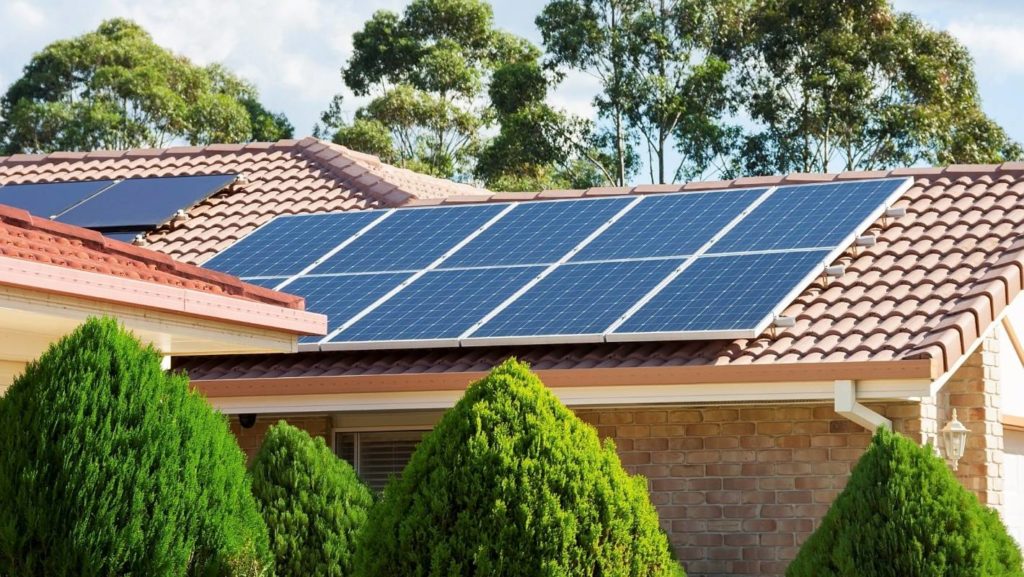
With Eskom’s unreliable power supply and hefty price hikes, ongoing Load Shedding and internal problems the African homeowners are starting to consider alternative power solutions.
All major Banks are now accepting applications for anything from 5 years to 20 Years funding to be added to their existing Mortgage. In 99,9% of the cases the price for a system is much cheaper than buying form Eskom currently.
The public utility provider, which generates around 95% of the nation’s electricity, was granted a 13.8% tariff increase for 2019/20. And a further increase of 9.6% thereafter, with electricity prices set to soar by between 30% to 45% over the next three years, there’s arguably no better time to invest in alternative power solutions then now.
But with that being said, there are many homeowners who might not know which alternative power solutions are available to them. And those who do, might not know how to make a clean break from conventional electricity. To help reduce this knowledge gap, we have the list of options to consider below to develop this helpful local guide to alternative power solutions.
Alternative Power Solutions
By definition, alternative power solutions refers to any energy source alternative to fossil fuels. While South Africa is still largely dependent on coal-based electricity, there are a number of viable alternatives, including wind and solar power. The choice of whether to use wind or solar, or both, will all depend on the intended use, the amount of power needed and the location of the intended use.
In most cases Wind Turbines are not allowed in Residential areas and leaves us to fall back onto PV Solar and battery Storage. After 21 Years in the industry, we have seen many solutions and found out all the pitfalls when designing a solution for residential and Commercial Clients.
Important to note that when going OFF GRID (Meaning no connection to Eskom or Municipality) you MUST consider BAD weather conditions, Storage capacity and option to add a Generator as back up. However, if you are looking at remaining connected then the Grid would act as your back up and NO generator or larger battery storage is reduced or not necessary.
On average your winter months will reduce capacity up to 50% at least and this would require either to use Eskom or have a Generator as essentially back up. Wind Turbine can be added to the system if permissible as an option. The integration of the system to operate in unison with the Solar solution is critical for a hassle-free system that operates intelligently on its own knowing when to use the solar PV Array, Battery storage or Switch Generator on (ONLY IF REQUIRED IN BAD WEATHER OR IF BATTERY BANK IS DEPLETED)
Alternative Power Solutions explained
There are four main alternative power solutions you might consider, as follows:
Load Shedding only
Install a system that tales care of essential loads only while there is load shedding (Make sure you install the correct Inverter and Battery as to be able to migrate to becoming self-sufficient Or a simple plug n play to resolve only essential loads.
Off-grid systems
Off-grid systems are entirely independent of an external electricity provider. They are ideal where an electricity provider is unavailable such as farms and rural communities. Off-grid systems may comprise of several elements. For example, TWS Digital solution is comprised of a solar panel hybrid system, battery bank, Generator (Optional) and power management system. All these elements work together to provide a stable source of electricity.
Hybrid systems
Can decide what percentage power you want to generate and store however remain connected to Grid as back up and or if you need excess power The area in which you reside plays a very important role in determining whether to install an off-grid or grid connected system. Installation usually requires permission from local authorities, so it’s important to always check with them first before you have a system installed.
Grid connected systems
Grid connected systems are used to supplement existing grid power. These systems have widespread commercial and domestic use, helping Africa to ‘go green’ and have the convenience of a grid connection at the same time. TWS Digital grid-tie systems can be designed for your energy usage. Keep in mind that the average electrified household uses ±4 198 kWh per year. Mainly selected to operate in day light hours only NO back up and systems only operate while there is a utility power connected. The benefit is purely saving energy costs by using the Grid Solar system before taking form the utility.
Water Pumping systems
In addition to off-grid and grid connected systems, you might also find yourself in need of a water pumping solution, especially if you reside on a farm or in a remote community. These systems are used to move water from a borehole, river or dam to a reservoir; and are proven to be more efficient than traditional windmills. For example, the Kestrel wind turbine and pump solution can deliver as much as 2 500 litres of water per hour.
Alternative Power Solutions cost
Below is a breakdown of how much you might expect to spend on an alternative power solutions for your home:
Load Shedding – From R7500 (Designed around your requirements)
Solar systems – Solar systems vary greatly in price due to power requirements and the rand/dollar exchange rate. However, to give a rough idea, you could have a solar system that generates around 18 kWh/day for ± R100 000 or a solar system that generates around 36 kWh/day for ± R190000. The storage is worked on +- 40% of daily capacity generation.
Grid Tie systems – R12000 Per Kw however this is tailored to clients’ needs and pricing will change.
Alternative Power Solutions benefits
In addition to offering long-term financial benefits for the average South African homeowner, alternative power solutions can have a positive impact on the country’s natural environment as well as the health and socio-economic environments. Renewable energy could reduce emissions but also create jobs and improve public health”.
We believe there are three main benefits to using alternative energy sources, as follows:
Reduced greenhouse gas emissions
By using alternative power solutions, less strain is placed on current energy producers. This reduces the amount of coal that needs to be burned, which in turn reduces the Global Warming effect that is currently occurring.
Improvement of public health
A reduction in the use of fossil fuels, as mentioned above, improves public health due to the reduction in air pollution from coal plants.
Long-term savings and energy independency
The initial spend on an off-grid system can be quite a pricey investment, but the long-term savings outweigh the cost. Homeowners also wouldn’t have to rely on Eskom for their power needs and won’t have to deal with the dreaded load-shedding.
Bank financing
With the major banks now having finance vehicles available for solar its now much easier to add this to existing bonds and pay less from day one.
TIPS-Inverter
Always make sure your inverter is the correct size and can be added if required to the system should you want to expand.
Lithium battery
Make sure its Lithium and can be added at any time to increase battery capacity storage. Also be mindful that Lithium Battery can only discharge 50% at peak however there are batteries that can discharge at 100% but they are slightly more expensive but highly recommended.
Wi-Fi connected
Make sure you have access to cloud connect its much easier to check a system remotely and reset if required will save you money for call outs etc.
New Power Solutions technology
New technology is on the horizon which require NO PV, NO Fuel, NO additional battery storage. These units work on independently for any power source other than its own generated power.
System One – Power On Generators (POG)
Capacity 3Kw, 5Kw,8Kw,12Kw and 16Kw and can be added 9 together to build capacity generation
System Two – Micro Sonic Energy Device (MSED)
Capacity 100Kw – 500Kw Units
These Units are stand alone power Generators in simple terms it’s a generator without fuel usage. The installation is extremely quick and no need for roof access simple direct into DB board through transfer switch.
We can provide detailed analysis and proposal for your energy requirements. What we require is the following:
- Your last months bill
- Your highest bill over 12 months should the last month not highest
- Location address if not the same as bill.
- Contact persons name
- Cell number
As a leading alternative power solutions provider for the local and global market, TWS Digital proudly advocates alternative energy as a worthwhile investment for South African homeowners. In comparison to purchasing conventional utility power, TWS Digital Power Solutions are environmentally friendly, customisable to your needs and can even enhance the value of your property.
If you would like to reduce your carbon footprint and save on your long-term energy costs, then contact the TWS Digital team today for a quote on an alternative power solution for your home.

0 Comments